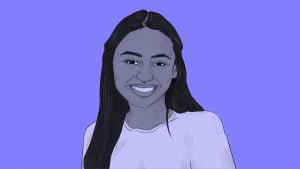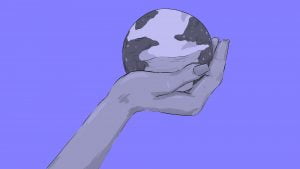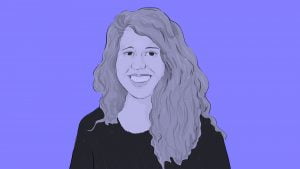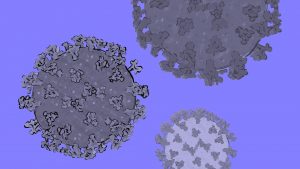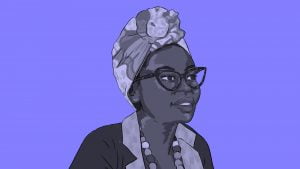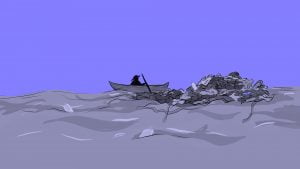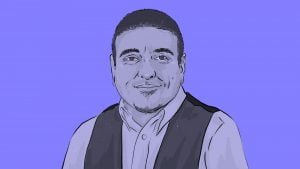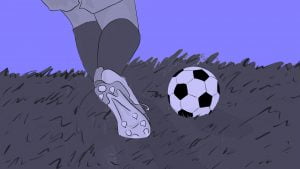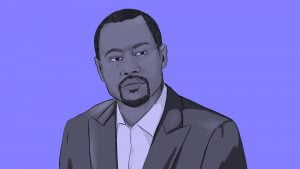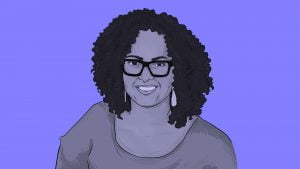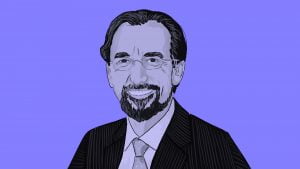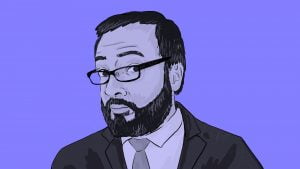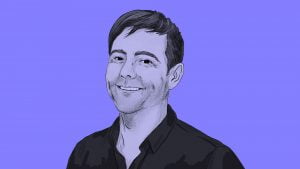
Course Correction (Season 1)
Host Nelufar Hedayat brings the tough global issues she covers in the Course Correction podcast up close by looking at them through the lens of her own history, habits, local surroundings and personal life, and then zooming out to broaden the perspective and get more information through interviews with leading experts and activists.
01. My Refugee Story: The Toughest Conversation I've Ever Had with My Mom
My Refugee Story: The Toughest Conversation I’ve Ever Had with My Mom
Nelufar puts her own family’s refugee story front and center in this episode, as she attempts to fill in the gaps by interviewing her mother. She learns some hard truths about her early years as the family repeatedly tried to flee war-torn Afghanistan, but were ultimately warmly welcomed to the UK. Then she interviews fellow Afghani Gulwali Passarlay, who fled years later, and talks to him about his journey at age 13 and the harsh contrast of how refugees are received nowadays.
Listen to the podcast for a Deep Dive into these essential questions:
- How can we broaden our understanding of refugees’ realities and develop empathy for their situations?
- How has the reception of refugees shifted over time and why might that be?
- What are the causes of refugee flight in different crisis zones, what are their journeys like, and how do they experience life in the places where they ultimately end up?
- How can we better understand the role of identity in the context of immigration?
Full lesson plan for educators: My Refugee Story
02. Cape Town: What Happens when a City Runs Dry?
Cape Town: What Happens When a City Runs Dry?
In response to the Cape Town water crisis, Nelufar takes on the personal challenge of limiting her water use to just 50 liters (13 gallons) a day – about one-third the average for Londoners. She interviews South African water expert Mike Muller to learn about the reasons behind that crisis, and zooms in on one of the poorest neighborhoods of the city, where the daily water reality is always on the verge of “Day Zero.”
Listen to the podcast for a Deep Dive into these essential questions:
- How can the lessons learned from Cape Town’s water crisis be used to prepare for or prevent future water crises in other cities?
- What is the reality of inequitable water availability and consumption in rich and poor sectors of cities and what can be done about it?
- Why is it important to understand water infrastructure?
- How will climate change affect water availability in the future and what can we do to offset the impact?
Full lesson plan for educators: Cape Town: What Happens When a City Runs Dry?
03. Shrinking Our Carbon Footprint
Shrinking Our Carbon Footprint
Nelufar pedals out into London to attempt a carbon-neutral day, then assesses her real carbon footprint. She interviews environmental lawyer Michael Gerrard, who talks about carbon emissions in terms of fossil fuels, global politics, climate change, share of responsibility and potential solutions. Finally, she interviews Talia Chain, a member of the global activist group Extinction Rebellion, for a view from the more vocal side of climate activism.
Listen to the podcast for a Deep Dive into these essential questions:
- What can we as individuals do to reduce our carbon footprint and, ultimately, make a difference when it comes to climate change?
- What are the industries behind our global carbon footprint?
- What are climate activists doing to make a difference worldwide, particularly in the global south?
- Is there a connection between climate change and the rise in right-wing political movements?
Full lesson plan for educators: Shrinking Our Carbon Footprint
04. COVID-19 Will Change the World Forever
COVID-19 Will Change the World Forever
Early on in the pandemic, Nelufar observes the early signs of change in her daily interactions. She then interviews anthropologist Jason Hickel and international relations strategist Parag Khanna to get their perspective on the kinds of changes this new reality may bring in terms of how we think about our healthcare, our economies, our sense of solidarity, the way the virus may affect the global south, and ultimately, our capacity for change.
Listen to the podcast for a Deep Dive into these essential questions:
- How will the virus impact our globalized world?
- Who’s going to pay the price of the decisions being made right now?
- How will the world be different two years from now?
- Is it feasible to have a world in which economic growth is no longer a priority?
Full lesson plan for educators: COVID-19 Will Change the World Forever
05. Is Globalization Good for Us?
Is Globalization Good for Us?
Nelufar takes stock of where the things she consumes come from and her role in globalization. She talks to international relations specialist Parag Khanna about the toll all this globalization is taking on the planet, trying to get a sense of the costs and benefits. Then she takes us to Ghana in an interview with Nana Adjoa for a closer look at the impact of globalization on women entrepreneurs involved in agriculture.
Listen to the podcast for a Deep Dive into these essential questions:
- What is globalization and is it good for the world overall?
- What role do and can women play in globalization, especially in the global south?
- How can globalization transform and become more about impact than profit?
- Can we lead ethical lives in a globalized world?
Full lesson plan for educators: Is Globalization Good for Us?
06. Kicking Our Plastic Habit
Kicking Our Plastic Habit
Nelufar takes on the challenge of some self-awareness about her personal plastic habit and attempts to cut back on it. She discovers it’s not so easy. She interviews Australian activist Rebecca Prince-Ruiz, founder of the Plastic Free July movement, for a tough dose of reality on the life cycle of plastic, why it’s so cheap and where it all ultimately ends up. She then takes us to Vietnam to talk to Hoang Thao, an environmental activist who is leading the movement to educate people about the dark side of plastics recycling, now a major industry in Vietnam, while fostering a zero-plastic lifestyle with her shop, Go Eco Hanoi. Finally, Nelufar brings the issue back home and discovers her parents are eco-warriors in their own way.
Listen to the podcast for a Deep Dive into these essential questions:
- What is your personal role in the life cycle of plastic?
- How can we better understand the concept of convenience to meaningfully reflect on our use of plastics and what we are willing to give up or change in our lifestyle?
- Has humanity benefited from the use of plastics in ways that are worth preserving?
- How can individuals make a real difference when it comes to plastic waste and the world’s wildlife and ecosystems?
- How can art change our perspective on waste?
Full lesson plan for educators: Kicking Our Plastic Habit
07. Love, Hate and the Power of Listening
Love, Hate and the Power of Listening
In this episode, Nelufar takes us first to a conflict resolution circle led by Alma Abdul-Hadi Jadallah in Iraq. Then she interviews a former prisoner, Sammy Rangel, who now counsels inmates in southern Illinois to let go of hate. She draws on these case studies to examine her own communication breakdown over Brexit with long-time friend Kat. Now let’s take a deeper look at her interviews, use what we learn to fill in the gaps in her argument with Kat, and chart a path to common ground for them both. And with any luck, maybe some of your own disputes as well.
Listen to the podcast for a Deep Dive into these essential questions:
- What are the grievances, assumptions, gaps in communication and interests involved in the two case studies?
- How might the lessons learned in the two case studies help improve communication, challenge assumptions and clarify grievances between Nelufar and Kat for them to have a better conversation on Brexit?
- Are there conflicts in your own life or community to which you would like to apply the skills discussed here to have better conversations?
Full lesson plan for educators: Love, Hate and the Power of Listening
08. This Isn't a Game: The Fight for Equal Pay in Soccer
This Isn't a Game: The Fight for Equal Pay in Soccer
Nelufar starts off by hitting the field herself and discovers that playing football is a lot tougher than she imagined. And not only when it comes to the physical demands. It’s tougher for women who play professionally, who not only are paid less than men, but are often barely paid enough to live on. She interviews sports writer Shireen Ahmed for her take on the structural aspects of unequal pay in professional women’s football. She then talks to Nicole McClure, goalkeeper for the Jamaican national team, for a front-row view of the reality of players’ lives and why their fight for equal pay is about more than money.
Listen to the podcast for a Deep Dive into these essential questions:
- How and why have women’s sports historically been a platform for advancing women’s rights?
- What are the cross-cutting issues potentially affected by the fight for equal pay in women’s soccer?
- In what other ways is discrimination practiced against women and girls in soccer throughout the world?
- How can we look at women’s soccer systemically to improve equality in all aspects of the sport?
Full lesson plan for educators: The Fight for Equal Pay in Soccer
09. Racism and Refugees
Marc Lamont Hill: Racism & Refugees
In this episode, Nelufar talks to journalist and academic Dr. Marc Lamont Hill about the cross-cutting issues of racism and the refugee crisis. They discuss the importance of language in the representation of refugees, the lessons from history of how language has shaped racism in the U.S., and how to understand and confront white supremacy and the existing power structures that continue to uphold inequality along racial lines.
Listen to the podcast for a Deep Dive into these essential questions:
- What role does racism play in the global refugee crisis?
- What is the West’s moral responsibility in this crisis?
- Why is the language we use when we talk about race and refugees important and how can we shift our language to reframe these issues to build greater empathy and impact change?
- How can we examine white supremacy honestly and broadly as a source of systemic inequality in the world and chart a path towards eradicating it?
Full lesson plan for educators: Racism and Refugees
10. Ending Period Poverty
Ending Period Poverty
In this episode, Nelufar brings the issue of menstruation front and center to talk about the historic taboos associated with it, and the cultural and economic reality of how this continues to restrict the lives of people who menstruate. She interviews Mandu Reid, leader of the Women’s Equality Party in the UK and founder of The Cup Effect, a charity that aims to tackle period poverty and the stigma attached to menstruation.
Listen to the podcast for a Deep Dive into these essential questions:
- Why does menstruation continue to be stigmatized, even today?
- What role do men play in cultural and societal attitudes about menstruation?
- How can eradicating the taboo of menstruation have life-changing consequences for some people?
- Why is changing how we talk about this subject in particular so important?
Full lesson plan for educators: Ending Period Poverty
11. In Defense of Human Rights
Zeid Ra’ad al-Hussein: In Defense of Human Rights
Nelufar interviews former UN High Commissioner for Human Rights Zeid Ra’ad al-Hussein about the world leaders who loathe him, the erosion of trust in the UNHRC’s mission, government in general, and among people themselves. They discuss the role of polarization, human nature and violence, the weaponization of fear historically, the standards to which the UN holds countries and the future of human rights advocacy at the grassroots level. Their conversation gives listeners a personal window into what it’s like to navigate on the inside of this international organization.
Listen to the podcast for a Deep Dive into these essential questions:
- Why is trust in institutions such as the UN, government and each other eroding worldwide and what does this hold for the future?
- Is today’s polarization more extreme than at other times in history and how can we make better use of the lessons of the past in this sense?
- How have international institutions such as the United Nations and the International Criminal Court (ICC) made a difference in protecting human rights over time?
- Are the roles of young activists and grassroots advocacy more essential today than at other times in history?
Full lesson plan for educators: In Defense of Human Rights
12. Standing Up to Big Data
Nelufar hunts down her personal data on her social media and is surprised to discover how much is being used and for what purpose. She goes searching for answers, first from Danny O’Brien at the Electronic Frontier Foundation, about protecting our digital liberties, how big companies profit off our personal data and the legal frameworks for restraining that. Then she talks to Ingmar Weber, a data scientist at the Qatar Computing Research Institute for a look at how big data can also be used for positive outcomes.
Listen to the podcast for a Deep Dive into these essential questions:
- How can we be mindful and informed about how our data is being used, shared or sold?
- What makes data privacy a human right?
- Is the internet good for democracy?
- Who are the main companies using our data, to what ends and under what oversight?
Full lesson plan for educators: Standing Up to Big Data
13. How "Course Correction" Changed My Life
How "Course Correction" Changed My Life
In the final episode of this season, Nelufar recaps the impact that some of her conversations with guests on the podcast have had on her personally. She asks conflict resolution expert Dr. Govinda Clayton to help her examine these conversations more closely and why they stood out for her. They also talk about how taking on the challenge of complex global issues from the perspective of her everyday habits has been transformative for her.
Listen to the podcast for a Deep Dive into these essential questions:
- What are the lessons learned from Nelufar’s reflections on her difficult conversations and how can we apply them to our own?
- What is the connection between better conversations and systems thinking?
- Drawing inspiration from Nelufar’s challenge episodes, which of the major global problems she explores in the podcast are you willing to take on as a personal challenge to change your own behavior?
Full lesson plan for educators: How Course Correction Changed My Life
